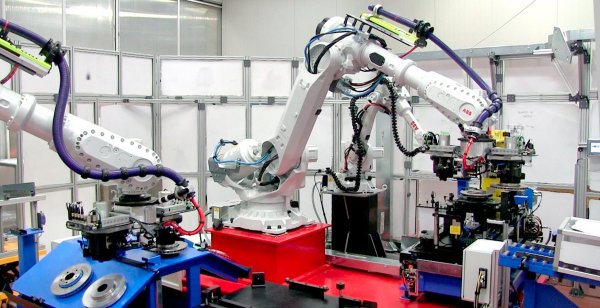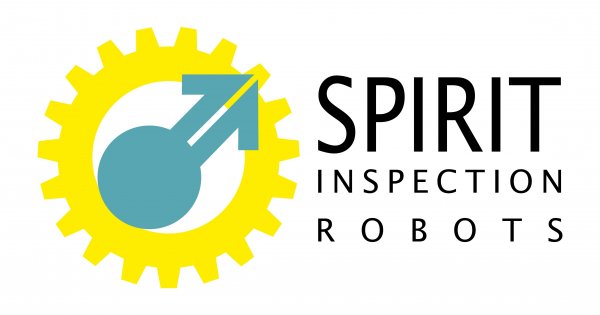Exhibitors 2019
- 3D PRINTING
- ART
- EDUCATION
- HOME AUTOMATION
- INTERNET OF THINGS
- KIDS & EDUCATION
- RECYCLING & UPCYCLING
- ROBOTICS
- SCIENCE
- YOUNG MAKERS (< 18)
- BIOLOGY
- GAMES
- ARTIFICIAL INTELLIGENCE
- OPEN SOURCE
- NEW MANUFACTURING
- FABRICATION
- WELLNESS & HEALTHCARE
- ENERGY & SUSTAINABILITY
- FOOD & AGRICULTURE
- 3D SCANNING
- CULTURAL HERITAGE
- AEROSPACE
- HACKS
- MUSIC & SOUND
- ARTISANS & NEW CRAFT
- FASHION & WEARABLES
- DRONES
- STEAM PUNK
- ARDUINO
- CROWDFUNDING
SPIRIT - A software framework for the efficient setup of industrial inspection robots
The SPIRIT projects aims to develop an “inspection skill” for robots that takes the step from programming of complex inspection tasks to configuring such tasks. This will substantially reduce the engineering costs when setting up inspection robots in industrial environments. The main result will be a software framework that consists of two parts.
The “offline framework” handles such the model-based automatic coverage planning for complex parts and various image-based inspection processes as well as the automatic robot program generation. It will include a generic interface to allow the easy exchange of process models (for different inspection technologies), of the CAD model of the part (for a different type of product to be inspected) or of the work-cell model (for a different kinematic structure).
The generic “inline framework” deals with sensor data mapping to transfer 2D image data to the 3D object model. It will provide the backbone for the real-time execution of the actual inspection process, including the synchronization of data acquisition and robot motion.
EXPECTED IMPACT
• Reducing the engineering costs for setting up a robotic inspection task by 80%
• Creating a software framework that allows the shift from project-based, ad-hoc solutions to a product-based approach.
• Reducing the barrier when introducing automatic inspection systems by aiming at a return of in- vestment of less than 2-3 years.
• Realising a potential of several hundred addition- al robotic installations per year.
• Helping SMEs to reach out to worldwide markets by providing a proven framework for inspection robots.
The “offline framework” handles such the model-based automatic coverage planning for complex parts and various image-based inspection processes as well as the automatic robot program generation. It will include a generic interface to allow the easy exchange of process models (for different inspection technologies), of the CAD model of the part (for a different type of product to be inspected) or of the work-cell model (for a different kinematic structure).
The generic “inline framework” deals with sensor data mapping to transfer 2D image data to the 3D object model. It will provide the backbone for the real-time execution of the actual inspection process, including the synchronization of data acquisition and robot motion.
EXPECTED IMPACT
• Reducing the engineering costs for setting up a robotic inspection task by 80%
• Creating a software framework that allows the shift from project-based, ad-hoc solutions to a product-based approach.
• Reducing the barrier when introducing automatic inspection systems by aiming at a return of in- vestment of less than 2-3 years.
• Realising a potential of several hundred addition- al robotic installations per year.
• Helping SMEs to reach out to worldwide markets by providing a proven framework for inspection robots.
Italy
IAS-Lab (Intelligent Autonomous Systems Laboratory), University of Padova
Emanuele Menegatti is Full Professor of the School of Engineering at Dept. of Information Engineering of University of Padova since 2017. He received his Ph.D. in Computer Science in 2003, in 2005 he became Assistant Professor and Associate Professor in 2010. Menegatti was guest editor of five special issues of the journal Robotics and Autonomous Systems Elsevier. Menegatti's main research interests are in the field of Robot Perception and 3D distributed perception systems. In particular, he is working on RGB-D people tracking for camera network, neurorobotics and service robotics. He is teaching master courses on “Autonomous Robotics”, “Three-dimensional data processing” and bachelor course in “Computer Architecture” and a course for school teachers on “Educational Robotics”.
He was coordinator of the FP7 FoF-EU project “Thermobot” and local principal investigator for the European Projects “3DComplete” and “FibreMap” and “Focus” in FP7; “eCraft2Learn” and “SPIRIT” in H2020.
He was general chair of the 13th International Conference "Intelligent Autonomous System" IAS-13 and was program chair of IAS-14 and IAS-15. He is author of more than 50 publications in international journals and more than 120 publications in international conferences.
In 2005, Menegatti founded IT+Robotics, a Spin-off company of the Univ. of Padua, active in the field of industrial robot vision, machine vision for quality inspection, automatic off-line robot programming. In 2014, he founded EXiMotion a startup company active in the field of educational robotics and service robotics.
He was coordinator of the FP7 FoF-EU project “Thermobot” and local principal investigator for the European Projects “3DComplete” and “FibreMap” and “Focus” in FP7; “eCraft2Learn” and “SPIRIT” in H2020.
He was general chair of the 13th International Conference "Intelligent Autonomous System" IAS-13 and was program chair of IAS-14 and IAS-15. He is author of more than 50 publications in international journals and more than 120 publications in international conferences.
In 2005, Menegatti founded IT+Robotics, a Spin-off company of the Univ. of Padua, active in the field of industrial robot vision, machine vision for quality inspection, automatic off-line robot programming. In 2014, he founded EXiMotion a startup company active in the field of educational robotics and service robotics.
C3 (pav. 9)





















































































